In a true emergency, seek medical attention as soon as possible at the hospital emergency room.
If you have a medical problem that you would like to be seen by a doctor the same day for, but you do not feel that it is an emergency, the best place to go would be an urgent care clinic. If you go to the emergency room for something that is not an emergency (like for a sore throat or pink eye), they will see you and treat you, but will not admit you to the hospital. In a case like that, there is an additional $500 deductible by the insurance company. The emergency room is not to be used as your regular doctor.
Here is the link to the medical insurance information and claim forms: APIA Medical
You may go to any doctor or clinic you choose, but if you go to an in-network doctor you are less likely to be asked to pay upfront. If you do have to pay upfront, you can be reimbursed by submitting a claim form to the insurance (providing you have met your deductible, if applicable.)
Here’s how to find the Urgent Care Centers near you who accept our insurance (Aetna)
- To find the one nearest to you, go HERE.
- Type in your zip code.
- Select a Plan. Choose “Passport to Healthcare Primary PPO Network”.
- Under “Find what you need by category”, select “Urgent Care” or “Walk-in Clinic”.
You will receive results like the examples below, in list view or map.
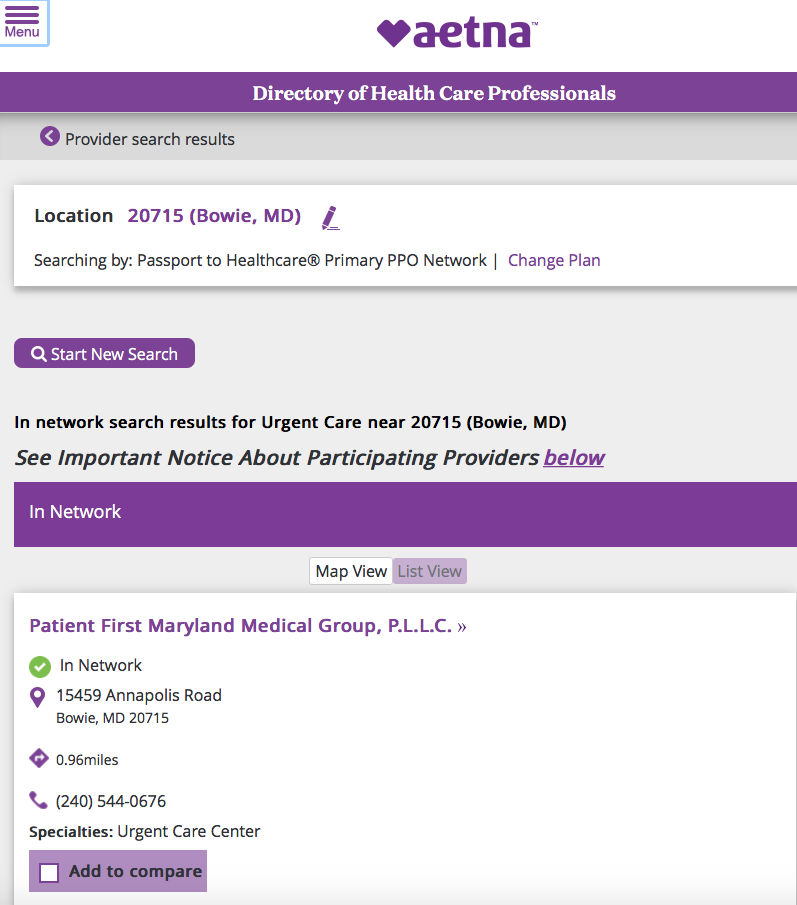
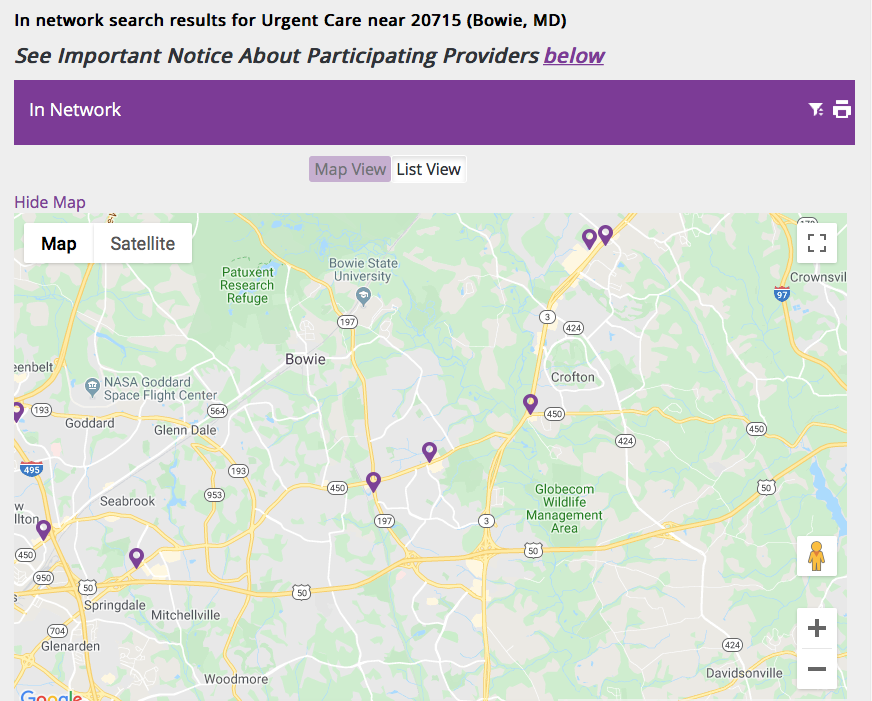
What if you know of another Urgent Care Center near you and it doesn’t appear on the insurance search results? You may call the facility and ask if they accept Aetna. If they say yes, you may go there also. Urgent Care Centers are popping up everywhere and they don’t always get added to the insurance listing immediately.
As of 1/9/2020, Patient First, Righttime, Concentra & Express Care are Aetna participating providers.
For fairly simple medical issues the CVS Minute Clinic is a great option.
CVS Minute Clinic – www.minuteclinic.com
Open daily – Hours vary by location. No appointment is necessary.
Locations including: Annapolis, Bethesda, Crofton, Edgewater, Langley Park, New Carrollton, Rockville, Silver Spring & Upper Marlboro
For less complicated illnesses including: Allergies, Bladder Infections, Colds, Ear Infections, Pink Eye & Styes, Sinus Infections, Strep Throat, Swimmer’s Ear, Athlete’s Foot, Cold Sores, and Vaccinations.
Visit their website for a complete list of locations, conditions they will treat and the costs.
Bring your Insurance Card – You will need to show your insurance card. You should have received an email from CISI when you arrived. You can search for that email and print your card. Another option is to register at the myCISI portal and print a card from there.

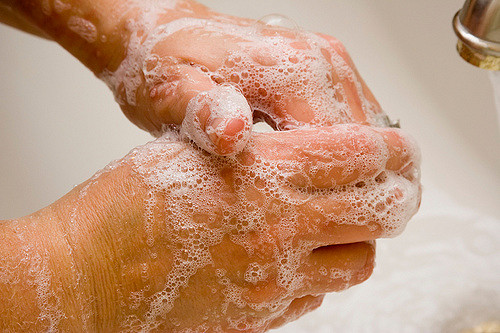 Here’s some useful information from the Center for Disease Control about how you can protect yourself from the flu and how to treat yourself and your host children should you get sick.
Here’s some useful information from the Center for Disease Control about how you can protect yourself from the flu and how to treat yourself and your host children should you get sick. Swords, knives, and other costume accessories should be short, soft, and flexible.
Swords, knives, and other costume accessories should be short, soft, and flexible. Avoid trick-or-treating alone. Walk in groups or with a trusted adult.
Avoid trick-or-treating alone. Walk in groups or with a trusted adult. Fasten reflective tape to costumes and bags to help drivers see you.
Fasten reflective tape to costumes and bags to help drivers see you. Examine all treats for choking hazards and tampering before eating them. Limit the amount of treats you eat.
Examine all treats for choking hazards and tampering before eating them. Limit the amount of treats you eat.
 Hold a flashlight while trick-or-treating to help you see and others see you. WALK and don’t run from house to house.
Hold a flashlight while trick-or-treating to help you see and others see you. WALK and don’t run from house to house. Look both ways before crossing the street. Use crosswalks wherever possible.
Look both ways before crossing the street. Use crosswalks wherever possible. Only walk on sidewalks whenever possible, or on the far edge of the road facing traffic to stay safe.
Only walk on sidewalks whenever possible, or on the far edge of the road facing traffic to stay safe. Wear well-fitting masks, costumes, and shoes to avoid blocked vision, trips, and falls.
Wear well-fitting masks, costumes, and shoes to avoid blocked vision, trips, and falls. Never walk near lit candles or luminaries. Be sure to wear flame-resistant costumes.
Never walk near lit candles or luminaries. Be sure to wear flame-resistant costumes. Dehydration means that the body lacks the necessary amount of fluid. Infants and small children are more likely to become dehydrated than older children or adults, because they can lose relatively more fluid quickly.
Dehydration means that the body lacks the necessary amount of fluid. Infants and small children are more likely to become dehydrated than older children or adults, because they can lose relatively more fluid quickly.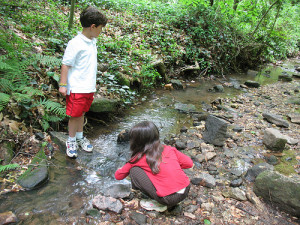
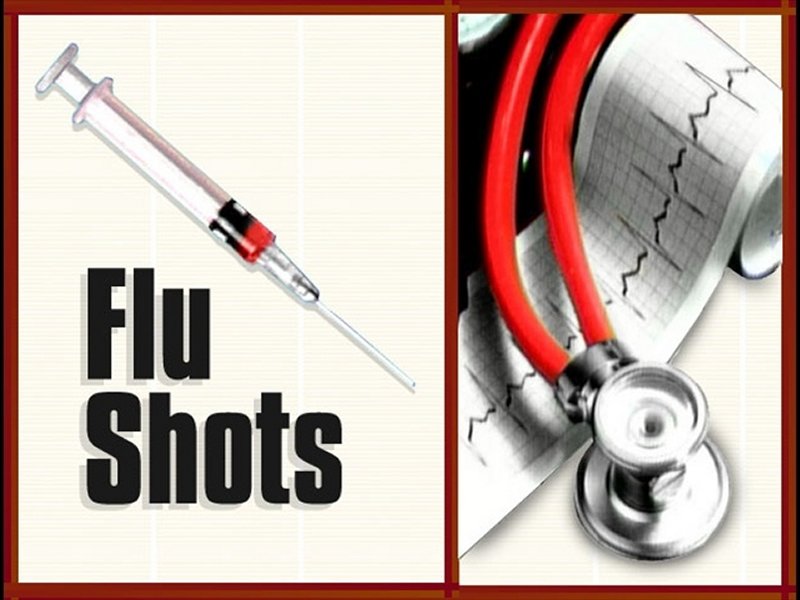


![GR-90-101B[1]](https://blogs.aupairinamerica.com/mdf/wp-content/uploads/sites/2/2010/02/GR-90-101B1-300x300.jpg)

